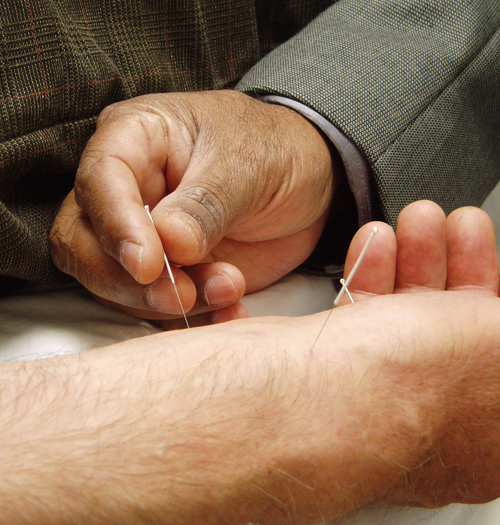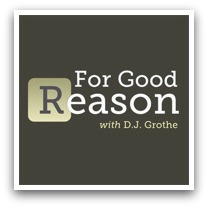How To Communicate?
- Details
- Written by James Randi
- Category: Swift
- Hits: 74054
 I'm baffled by the many gossip venues on the Internet, and I've never become involved in any of them -- there is far too much kid-stuff like the kind I see being promoted all across the Internet spectrum. I don't have time to play these games; I've serious matters to attend to -- and there's a comment that the kids out there will seize upon as a plaything, I'm sure...
I'm baffled by the many gossip venues on the Internet, and I've never become involved in any of them -- there is far too much kid-stuff like the kind I see being promoted all across the Internet spectrum. I don't have time to play these games; I've serious matters to attend to -- and there's a comment that the kids out there will seize upon as a plaything, I'm sure...
I recently unwisely offered to discuss with someone who commented on the Huffington Post on the question of acupuncture, which he/she was convinced worked wonderfully, and offered to share with him/her a pertinent excerpt from my next book A Magician in the Laboratory. The reaction to that offer convinced me to send the following to him/her. Since I’d rather not register with the Huffington Post, I will post my response here:
Richard Wiseman discusses Paranormality on For Good Reason
- Details
- Written by For Good Reason
- Category: Latest JREF News
- Hits: 6182
 In this week's episode of For Good Reason, Professor Richard Wiseman discusses his work researching the psychology of the paranormal. He explains the value in continuing to research paranormal experiences despite the fact that they probably are not true. He also delves into his history as a magician and how that influenced his decision to become a psychologist. He explores the psychological and physiological responses to fear and how they can bolster a belief in the paranormal.
In this week's episode of For Good Reason, Professor Richard Wiseman discusses his work researching the psychology of the paranormal. He explains the value in continuing to research paranormal experiences despite the fact that they probably are not true. He also delves into his history as a magician and how that influenced his decision to become a psychologist. He explores the psychological and physiological responses to fear and how they can bolster a belief in the paranormal.
For Good Reason is the interview program hosted by D.J. Grothe, promoting critical thinking and skepticism about the central beliefs of society. Interviews often focus on the paranormal, pseudoscience and the supernatural. The show is produced in association with the James Randi Educational Foundation.
You can listen to past episodes online at ForGoodReason.org or subscribe to the podcast in iTunes.
Skeptic History: Archaeological Fakes
- Details
- Written by Tim Farley
- Category: Swift
- Hits: 67219
A number of archaeological hoaxes or fakes have surfaced over the years. One of the most famous is Piltdown Man, an alleged early hominid found in ![]() England, first publicly discussed on December 18, 1912. A controversy raged over this for many years, in part because it was inconsistent with what was then known about evolution. A definitive debunking of it as a hoax was finally published on November 21, 1953.
England, first publicly discussed on December 18, 1912. A controversy raged over this for many years, in part because it was inconsistent with what was then known about evolution. A definitive debunking of it as a hoax was finally published on November 21, 1953.
This was not the last hoax, however. Ten years ago, an interesting scandal occurred in Japan. Fujimura Shinichi was an amateur archeologist who had discovered hundreds of paleolithic artifacts since 1981. Only a few scientific papers had questioned his discoveries, noting some unusual features.
News From The Classroom
- Details
- Written by Michael Blanford
- Category: Swift
- Hits: 179614
Here is a brief round up of education news from the JREF
Few in science, education, or literature have had as great an impact on the public’s understanding or appreciation of science as Carl Sagan. The JREF was proud to play a role in the celebration of Dr. Sagan’s life that was held at Broward College in South Florida this past week.
The third annual Carl Sagan Day was an inspired and inspirational event bringing attention to Sagan’s work through educational programs for students, workshops for teachers, science activities for the public and a series of lectures. For many, the highlight was James Randi's presentation reflecting on his friendship with the great thinker and educator.
Many thanks to Jeanette Madea, whose hard work made this year’s Carl Sagan Day a tremendous success.
HealthMonitor Magazine Touts Quackery
- Details
- Written by James Randi
- Category: Swift
- Hits: 12534
Being curious about most literature dealing with cancer, I picked up a copy of a 36-page Guide to Chemotherapy at my oncologist’s office, since “chemo” is a process through which I passed recently, with such great success. It’s published by the Health Monitor Network, whose lawyers are careful to state that the publication
…is not intended to provide advice on personal medical matters, or to substitute for consultation with a physician.
I’ve been concerned with the fact that most literature I’ve picked up dealing with chemotherapy side-effects manage to drop in polite references to acupuncture, suggesting that patients ask their doctors whether this centuries-old nonsense might help them. This is obviously in “PC” deference to those who might also want to embrace useless woo-woo treatments. But though the first 27 pages of the Guide were free of woo-woo, pages 28 to 32 were “20 tips for thriving during treatment,” and suggestion #15 was “Try something new,” and related that the Montefiore Einstein Center for Cancer Care in New York City encourages their patients to
…try activities such as crocheting, scrapbooking, tai chi, Reiki, and even a drum circle.
Page 162 of 408